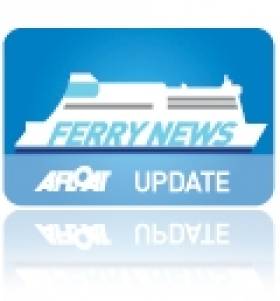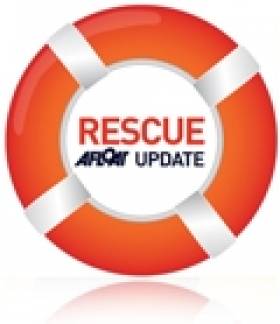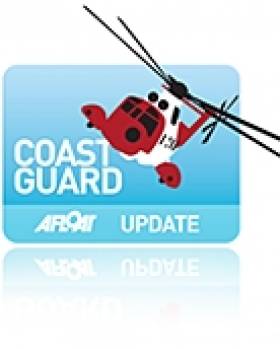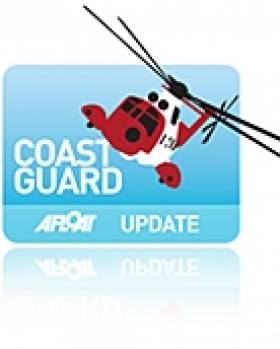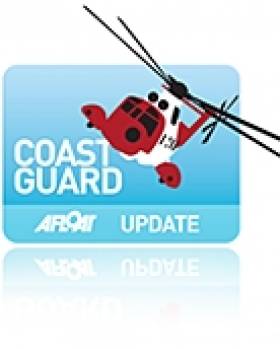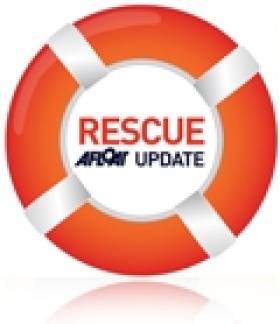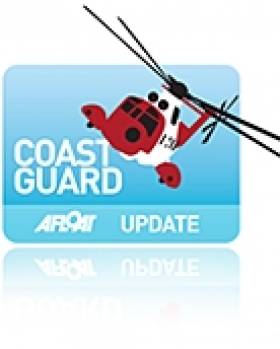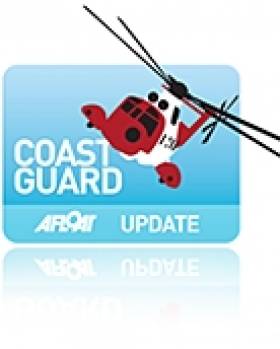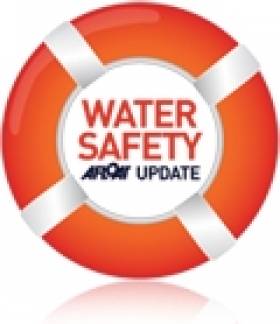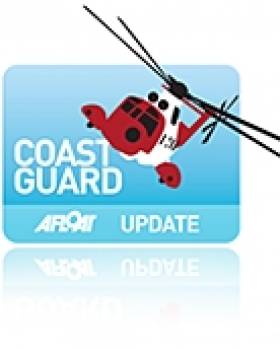Displaying items by tag: Search and Rescue
Passenger Ship Obligations to Assist in Search & Rescue
The Department of Transport's latest marine notice pertains to the requirements for passenger vessels in assisting with search and rescue services.
All passenger ships on international routes - such as ferries and cruise liners - are obliged to have a plan for co-operation with search and rescue operations should their assistance be needed.
The notice outlines that any plan should be developed between the ship itself, the ship company and the Irish Coast Guard. Plans must also be drilled periodically to test their effectiveness.
Ship owners and masters are also obliged to give an indication of the existence of their co-operative rescue plans by way of SeaSafeIreland (SSI) notification. Should that not be possible, the Marine Survey Office of the Department of Transport must be notified directly.
A PDF of Marine Notice No 18 of 2011 is available to read and download HERE.
Search Resumes for Missing Fishermen Off Skerries
The lifeboat and Coastguard search for two fishermen missing off the north Co Dublin coast has resumed this morning.
The Irish Times reports that the two men, believed to be in their 20s and 40s, were on a small open fishing boat that departed Skerries harbour around 11am yesterday (Friday 1 April). The alarm was raised at 6.30pm when they failed to return to port.
A Dublin Coast Guard spokesperson confirmed that items and debris believed to be from the missing boat were discovered during the initial search yesterday evening.
The search, involving three coastguard units, three lifeboats and a number of local vessels, was scheduled to resume at 7am this morning.
RTÉ News has more on the story - including video - HERE.
British Coastguard Fears Loss of Choppers
The union representing coastguard staff in the UK has expressed its fears over the loss of air rescue services when a number of helicopters are transferred to Ireland next year.
Under CHC's €500m contract to provide search and rescue services for the Irish Coast Guard, four helicopters will be withdrawn from England and Scotland for redeployment in Ireland.
However, HeraldScotland reports that the Maritime and Coastguard Agency (MCA) has no plans to replace these helicopters, which separately service Scotland's Isle of Lewis and Shetland Islands as well as the Solent and Portland in England.
The recent collapse of the privatisation deal for UK search and rescue services has meant there is no new operator lined up to replace CHC.
Jeremy Gautrey of the PCS union said that the situation "has now potentially left the coastguard service stranded without the guarantee that it will have sufficient helicopters to carry out search-and-rescue operations when the current helicopters retire."
HeraldScotland has more on the story HERE.
Loss of Bangor 'Would Jeopardise Air Rescues'
Ireland's free provision of air-sea rescue services to Northern Ireland could be in jeopardy if the Bangor coastguard centre is closed, a DUP MP has warned.
In today's Belfast Telegraph, Strangford's Jim Shannon said that loss of the cross-border relationship would "most certainly end in loss of life".
Shannon reiterated that the Bangor centre is not only responsible for Northern Ireland's coastline but also its inland waterways and loughs, and mountain areas such as the Mournes.
Merseyside MP Bill Esterson is also quoted as warning that his local coastguard staff "don't feel equipped to look after Northern Ireland" if services are consolidated in Liverpool.
Shipping Minister Mike Penning gave his assurance that coastguard staff would not be victimised if they submit their views to the open consultation, which has been extended to 5 May.
Marine Minister to Have Air-Sea Rescue Remit
Minister for the Marine Simon Coveney will have the remit for air and sea search and rescue services, it has emerged.
The Irish Times reports that the move is part of a promised consolidation of maritime functions under the new programme for Government.
Responsibilty for the Irish Coast Guard will however remain with Minister for Transport Leo Varadkar until an official transfer which is expected in the next few weeks.
Meanwhile, fellow Fine Gael TD and Minister of State for NewEra, Fergus O'Dowd, intends to push for a review of the State's €500m contract for search and rescue services with CHC Ireland.
O’Dowd said there were “significant questions to answer” over the deal signed by former Transport Minister Noel Dempsey last year.
The Irish Times has more on the story HERE.
Lifejacket Saves Boy in Lough Ramor
A lifejacket was key to saving a youg boy's life when he was thrown from his boat in Lough Ramor on Sunday afternoon.
The 14-year-old was the sole occupant of a RIB on the Co Cavan lough, and had failed to secure the emergency engine stop cord to his body before he went overboard.
But his lifejacket kept him afloat while a passer-by raised the alarm.
SAR Ireland reports that Coast Guard helicopter Rescue 116 was dispatched from Dublin in response, but was stood down when the boat owner, who has been contacted by gardaí, was able to rescue the youngster.
Minister's Praise of Bangor Coastguard 'Rings Hollow'
UK Shipping Minister Mike Penning's praise of staff at Northern Ireland's only coastguard station has been described as 'hollow' by a DUP MLA.
Penning had described his meeting with staff at the Bangor coastguard centre, which is threatened with closure under new streamlining plans, as "a breath of fresh air".
But the DUP's Peter Weir told the Community Telegraph that his praise "rings a little hollow as it is the minister who created the problem in the first place".
He added: "“We cannot be allowed to be the only part of the UK to be without this facility, and the Secretary of State should be making it clear to his colleagues that he feels so strongly about this that he considers this a resigning matter."
North Down Mayor John Montgomery (DUP) also complained that neither he nor his councillors were informed of the minister's flying visit, which had been rescheduled after a previous cancellation.
"Is the Shipping Minister running scared of North Down councillors?" he asked.
Penning Says Meeting with Bangor Coastguard Staff Clears Air
UK Shipping Minister Mike Penning described his meeting with Bangor coastguard staff last week as "a breath of fresh air", BBC News reports.
Last Wednesday Penning met staff at Northern Ireland's only coastguard centre, which is threatened with closure under plans to streamline the UK's coastguard station network.
Minister Penning admitted to BBC News that Bangor was not on the original list of centres marked for closure.
"It was a decision made by myself and the secretary of state and we were honest about that," he said, adding that there was now "acceptance of the people in the frontline that there has to be change and there has to be modernisation".
The minister said no date had been set for a final decision on which stations would be closed.
Meanwhile, the Community Telegraph reports on confusion among the public following the meeting with Maritime and Coastguard Agency (MCA) officials in Bangor on 3 March.
Ian Graham of the Public and Commercial Services (PCS) union, which represents coastguards, said: “They didn’t really answer any of the questions from the public adequately."
He added that statistics they used in a slideshow to illustrate rescue incident start time were "misleading" as "a lot of rescues can last for hours".
Nine out of 10 Distress Alerts in US 'Have No Location Info'
The US Coast Guard has shown concern at the number of distress calls made from yachts that do not include GPS position information to aid rescuers in their location.
Already in the US, all newly installed VHF radios are required to have digital selective calling, which transmits distress calls to search and rescue services with the yacht's MMSI (Maritime Mobile Service Identity), a unique identifier for the yacht that includes its name, home port and owner's name. The new units are also connectable to onboard GPS systems.
But most yacht owners do not connect their radios to GPS, it's argued, and many have not registered their MMSI.
Sail World reports comments from US Coast Guard Rear Admiral RE Day, who said: "Of the roughly 100 digital selective calling distress alerts we are now receiving each month, about nine out of 10 do not have position information."
He added: "There's little the Coast Guard can do after receiving a distress alert with no position information, using an unregistered MMSI and having no follow-up voice communications."
Afloat.ie asks: Are yacht owners in Ireland more safety conscious than their US counterparts? Or do we need to take more care to provide the right info to search and rescue services? Have your say in the comments below or at the Afloat.ie forum!
Bangor locals came face-to-face with officials from the UK's Maritime and Coastguard Agency (MCA) over the proposals to close Northern Ireland's only full-time sea rescue base.
The Belfast Telegraph reports that MCA bosses were loudly heckled when they tried to offer justifications for the closure of the Bangor station.
As previously reported on Afloat.ie, the UK's network of coastguard centres will be scaled back to just three 24-hour stations and a handful of daytime-only centres for the whole of Britain and Northern Ireland.
Supporters of the station said they felt let down at the “bad deal” and “shabby” proposals presented by the MCA and Shipping Minister Mike Penning, who added Bangor to the closures list at the last minute.
BBC News reports that more than 100 people attended the meeting in Bangor on Thursday evening, including members of the public, MLAs, councillors and MPs.
Bill McFadyen, the MCA's regional director for Scotland and Northern Ireland, admitted at the meeting that he was not handed a copy of the proposals until after they had been finalised.
He added: "Of course we will still maintain a high level of service here in NI as we move forward in whatever direction comes out of the consultation."
The Belfast Telegraph has more in the story HERE.



























